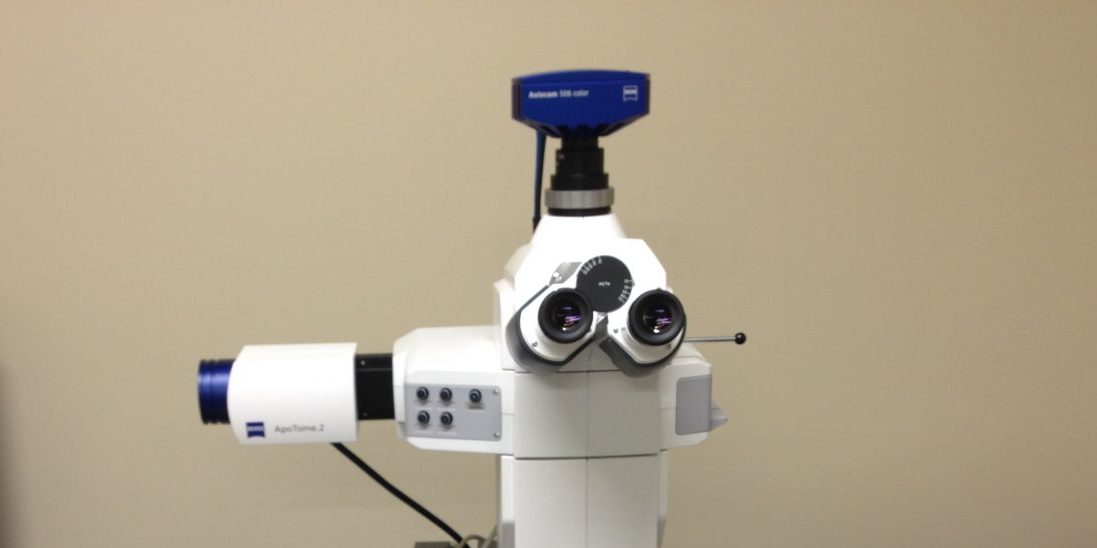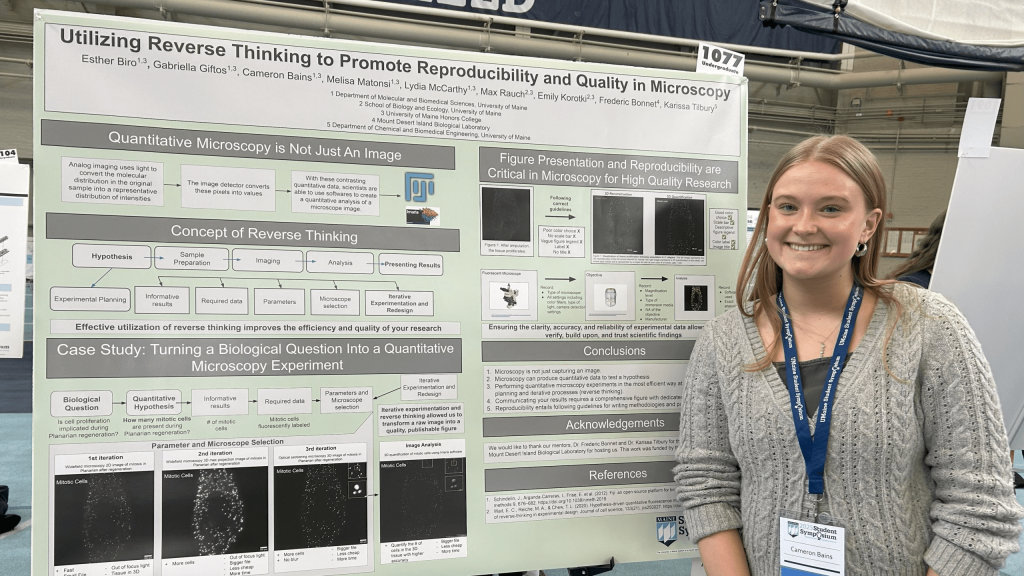
Student Spotlight: Cameron Bains

Cameron Bains is a third-year biochemistry major in the Honors College at UMaine. During the 2025 Winter break, she took part in the Honors tutorial course held at the Mount Desert Island Biological Laboratory (MDIBL). This week-long course, The Molecular Mechanisms of Human Disease, offered a unique opportunity to gain hands-on experience in biomedical research. It was led by UMaine professors Dr. Benjamin King and Dr. Karissa Tilbury. Dr. King and Dr. Tilbury are project leader and pilot project leader for the COBRE grant.
Cameron shared some highlights of the course:
I first learned about the course through fellow students in the Molecular and Biomedical Sciences (MBMS) department, who spoke highly of how it shaped their research paths. I also saw it advertised in the Honors College Weekly Newsletter, and I was drawn to it not only because it aligned with my academic interests, but also because it fulfilled an Honors College tutorial requirement. The course was structured into two modules, with the class split into two groups rotating between the modules. Each group presented their findings after both rotations, then selected one topic for further exploration.
In the first module, led by Dr. King, we investigated how environmental factors affect the innate immune system. Specifically, we examined how arsenic exposure influences immune response in zebrafish infected with Influenza. Using RNA-sequencing data from Dr. King’s lab, we applied bioinformatics tools—including RStudio, Ensembl, and GOrilla—to analyze the relationship between arsenic exposure and innate immune function. The second module, taught by Dr. Tilbury and Dr. Frederic Bonnet, focused on advanced microscopy techniques. We learned how to capture high-quality images and use image analysis software to extract quantitative data.
For my final project, I chose to dive deeper into microscopy—something I had never used in my research due to uncertainty about image analysis. Our group explored the concept of “reverse thinking” in microscopy, and with guidance from Dr. Bonnet, we used Fiji and Imaris to analyze existing images and generate meaningful data. After the course concluded, we presented our work at the University of Maine Student Symposium (UMSS) and will be presenting at the Maine Biological and Medical Sciences Symposium (MBMSS), showcasing everything we learned about microscopy and imaging.
I’m incredibly grateful for this opportunity. The experience has strengthened both my technical skills and my confidence as a researcher. I look forward to applying what I’ve learned to my ongoing work on polymicrobial infections and beyond. I’m especially excited to incorporate microscopy into my own research, now that I know how to generate high-quality images and use proper image analysis tools. A heartfelt thank you to Dr. King, Dr. Tilbury, Dr. Bonnet, the MDIBL team, and the UMaine Honors College for making this experience possible
